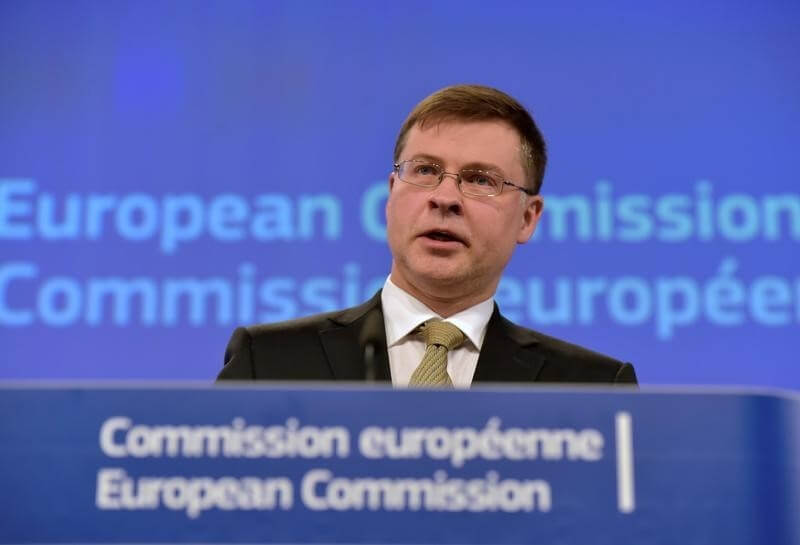By Francesco Guarascio
BRUSSELS (Reuters) – The European Union should set up a mechanism to wind down troubled clearing houses, the new head of financial services at the European Commission said on Wednesday, setting out his priorities for the coming months. EU rules agreed after the 2007-08 financial crisis have increased the share of the $700 trillion derivatives market that is channeled through clearers, in an effort to make safer the financial instruments that were blamed for the crisis. Clearing houses such as Eurex Clearing As a consequence of the new rules, clearing houses, or central counterparties, are set to grow significantly, thus posing risks to financial stability if they collapse.
“Now that we have required more clearing of derivatives to be done through central counterparties, we need a system to resolve them if something goes wrong,” Valdis Dombrovskis told European lawmakers. Dombrovskis was given the financial services portfolio after British Commissioner Jonathan Hill resigned following Britain’s June 23 vote to leave the EU.
Speaking to the economic affairs committee of the European Parliament for the first time since his appointment, Dombrovskis confirmed plans made by his predecessor.
Hill had already said that a mechanism to wind down clearing houses was necessary, but made no formal proposals and gave priority to other projects, such as a capital market union to revive European credit markets. Dombrovskis included a resolution mechanism for clearing houses among his priorities. He will formally start in the new role on July 16, adding it to his current functions as commissioner responsible for the euro. The European Union has already introduced rules on how to wind down troubled banks without turning to taxpayers for cash, although only banks in the euro zone are so far covered by the new mechanism. (Reporting by Francesco Guarascio; Editing by Catherine Evans)
EU finance chief wants system to wind down troubled clearing houses

By Francesco Guarascio
















